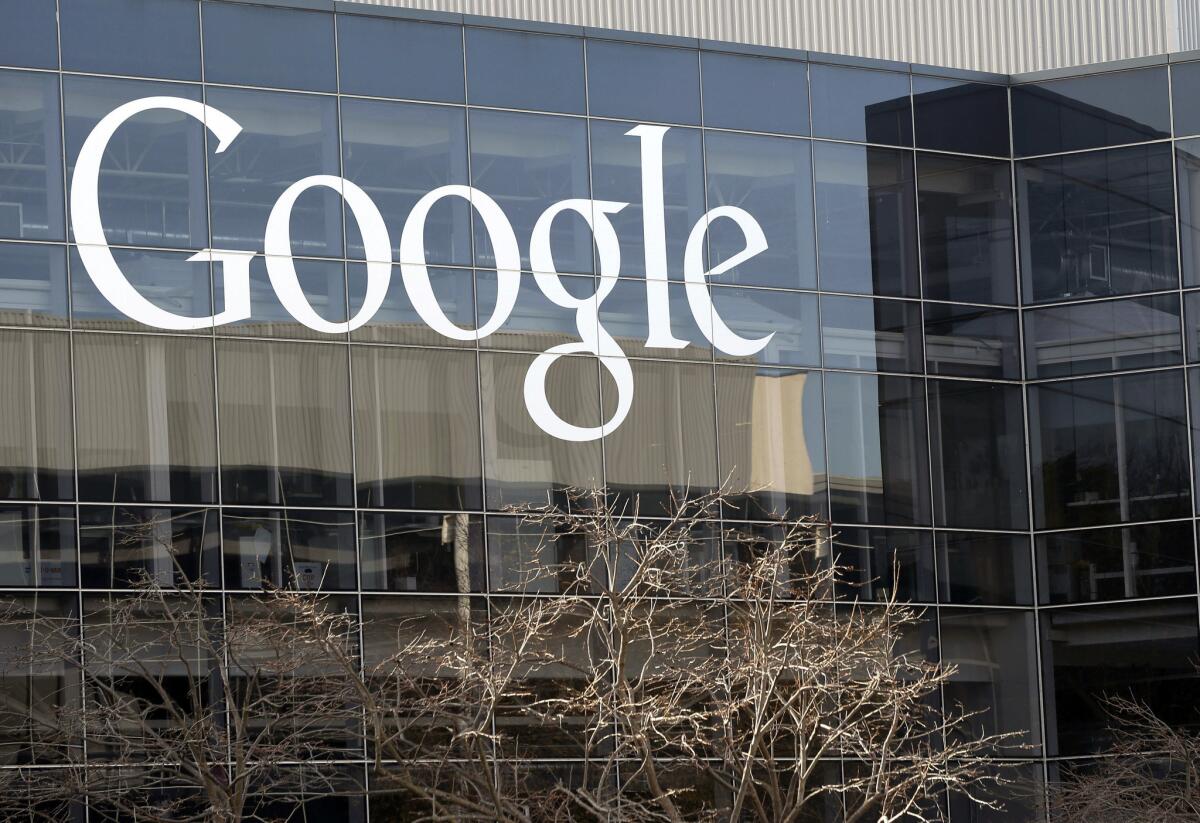Google warns Australians that they could lose free search service

- Share via
CANBERRA, Australia — Google warned Monday that the Australian government’s plan to make it pay for news content threatens its free search service in Australia and could hand user data to media organizations.
The U.S.-based company’s warning, contained in what it called an “Open letter to Australians,” comes a week before public consultations close on Australian draft laws that would make both Google and Facebook pay for news siphoned from commercial media companies.
“A proposed law ... would force us to provide you with a dramatically worse Google Search and YouTube, could lead to your data being handed over to big news businesses, and would put the free services you use at risk in Australia,” Google Australia and New Zealand managing director Mel Silva wrote.
Google owns video platform YouTube.
Google and Facebook have condemned the proposed legislation, which was released last month and aims to succeed where other countries have failed in making them compensate media businesses for news content.
Australian competition watchdog Rod Sims, chair of the Australian Competition and Consumer Commission, which drafted the laws, said Google’s letter “contains misinformation.”
“We should not be in the business of criminalizing Black existence while we chant that Black Lives Matter,” reads a letter from Google employees.
“Google will not be required to charge Australians for the use of its free services such as Google Search and YouTube, unless it chooses to do so,” Sims said in a statement.
“Google will not be required to share any additional user data with Australian news businesses unless it chooses to do so,” he added.
Australian Treasurer Josh Frydenberg, the minister responsible for the consumer watchdog, said in a statement that the draft law “remains open for consultation, providing an opportunity for media companies and digital platforms to provide feedback” until Aug. 28.
Belinda Barnet, a senior lecturer on media at Swinburne University, described the Google letter as a “cynical exercise” designed to “scare Google users.”
“I see no merit in any of the arguments,” she said. “One of the most ironic arguments is that they’re going to have to hand over some data to news organizations — for example, which article people have read and how long they may have read it for — and this, coming from the world’s major privacy violator and certainly the world’s largest data aggregator, is a bit rich.”
Google has been battling the Australian consumer watchdog on two fronts. Last month, the watchdog launched court action against Google for allegedly misleading account holders about its use of their personal data.
The commission alleges that Google misled millions of Australians to obtain their consent and expand the scope of personal information that it collects about users’ internet activity to target advertising. Google denies the allegations.
More to Read
Sign up for Essential California
The most important California stories and recommendations in your inbox every morning.
You may occasionally receive promotional content from the Los Angeles Times.









